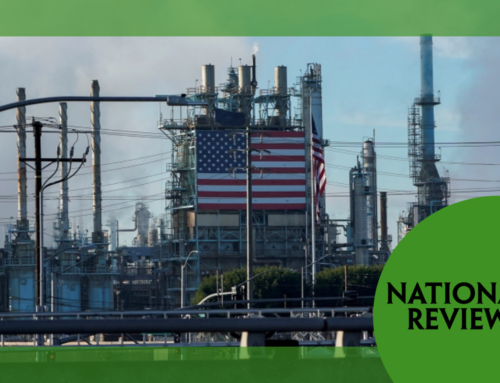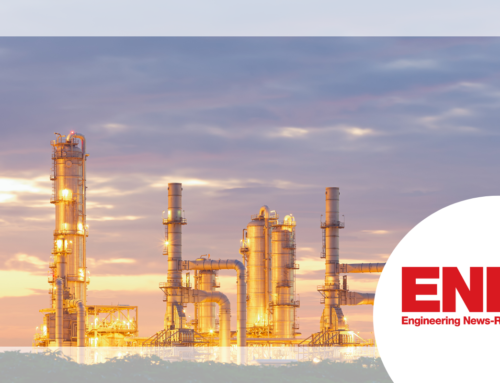By Iain Woessner / Forum News Service
Construction on the physical Davis Refinery is underway, but Meridian Energy Group CEO Bill Prentice acknowledges it’s not going as fast as they’d hoped. “(It’s) a little slower. A lot of the litigation associated with the permits has slowed us down, but it’s not going to stop this,” Prentice said. “We keep winning. Any time we win there’s an appeal, so that’s frustrating. There’s a point at which the state supreme court will say ‘enough is enough.’ There’s no new facts … they’re just trying to slow us down.”
The Davis model, an environmentally efficient refinery touted by Meridian as the “cleanest refinery in the world,” is spreading. Plans are already underway to build other refineries on the Davis model, including a 60,000 barrel per day model in the Permian Basin in Texas. The basic idea is to use new “lowest-achievable emission rate” technologies to address some of the environmental shortcomings of existing refineries. North Dakota remains the first priority, though.
“It cost us a lot to get Davis going. We got started up here in 2015, 2014 and we thought talking to people in the oil industry, it would be relatively fast to get a permit, compared to California for instance. Then (Dakota Access Pipeline) came along and all the issues relating to that and we ran into a storm,” Prentice said. “It took a long time. I’m glad they put us through the ringer; it showed exactly what we could do.”
There was not a lot of confidence from any sector when the project was first proposed. “When we first filed for the air quality permits in 2016, it was almost unanimous that we were crazy, including the air quality department,” Prentice said. He noted that the energy industry, particularly in the Upper Midwest region, was very set in ways it considered safe.
“It’s an industry that’s been called ‘well-organized,’ which means that nobody wants to see big ripples,” Prentice said. “That’s why you see 50 years of complacency. Even a permitting agency can’t do anything useful and innovative unless the company wants to do something. Now we’ve given everybody an excuse to require refineries to be cleaner.” Shaking up that attitude is instrumental, Prentice feels, for Meridian’s prosperity and perhaps a greater profit.
“The United States is now the largest oil producing nation and has been for the past six months. We’re exporting crude oil, about 4 million barrels a day,” Prentice said. “It’s a big business and it’s going to change the United States for the better if we do it right.”
Dan Hedrington, principal senior project manager with Short Elliott Hendrickson Inc., who did permitting work for Meridian on the Davis Refinery, added that it is a feature and function of the United States and its support of free enterprise and private industry that has resulted in this energy boom.
“To me, we would be really remiss not to mention that this is private sector development … this is kind of what we live on in the United States. The private sector says ‘this is what’s going to be a better solution, this is going to be a better process … that (is) going to impact better returns,’” Hedrington said. “The United States has the ability for the private industry to go out there and make these innovations on their own.” Through technological advancement like the Davis model, the conventional energy industry, long maligned for a lack of environmental conscientiousness, will be able to elevate itself.
“I’ve always considered myself an environmentalist. I love the outdoors,” Prentice said. “I don’t like wind (power), I don’t like solar (power), I think they’re ugly, I think they’re an abomination. The solution to this energy problem is conventional energy properly done … new technology, properly managed, is the way to go.” To that end, Prentice said he believes prudent regulation is important to the future of oil in America.
“I think the Clean Air Act and the Clean Water Act are settled law and technology has grown around them. I don’t think we should back off on that sort of thing,” Prentice said. “At the end of the day, you cannot pollute. That’s the law now, and that’s good. Now we’ve seen you can make a lot of money in refining by cleaning it up. That innovation, you need to find a way to balance regulation versus fostering innovation.”
A sign of hope in the changing times comes from the types of people who at long last are taking command of the movers and shakers in the industry — refiners themselves. “Refining has always been kind of an afterthought. You put holes in the ground for your crude, you have markets, a lot of people who are also producers have their own retail outlet. So, again, lately the refiners have risen to the top of some of the innovative oil companies,” Prentice said. “In our case, the way the industry can be restructured, we take a material that’s $50 a barrel and we turn it into products that are worth $180 a barrel. That’s a real asset. If you’re only going to do that, why would you do that using 1950s technology? Why would you not build it so you are clean and solve all these other problems?”
It’s this desire from within to shake things up that has fueled the fire lifting Meridian’s Davis plans skyward.
“The reason Davis is going to be the first (ultramodern refinery) is a convergence of a number of things. First of all, the team we have put together is a bunch of what used to be young go-getters,” Prentice said. “It was also a smattering of experience with other industries that have gone through a similar process. Electric power, for instance, generation that up until the late 1970s was all done by the utility. They did nothing new in terms of technology and they were being pushed on environmental quality.”
Prentice said throughout the history of energy development there’s been a technological and sometimes commercial drag as innovation lagged behind conservative practices. “Even recently, big companies that dive finally into the shale oil industry, that technology and how to manage that drilling and opening those formations, that’s a technology they care about because it’s a very high return on investment,” Prentice said. “But what happens when you get all this light crude that you’re putting into an industry that’s designed to process heavy crude? There’s no place to put it. That’s why you read about all these differentials, like they’re trying to get the crude out … also, rather than just try to find a pipeline and get rid of it, let’s start redoing our refining and make sense of it.”
Prentice said that Meridian was becoming “an agent of change” in an industry that “badly” needs it. “It means that the industry will have to clean up its act overall,” Prentice said. “It means other refiners will begin to lose their fear of applying new technology to their situations.”
Read Source Here (GrandForksHerald.com)







Leave A Comment